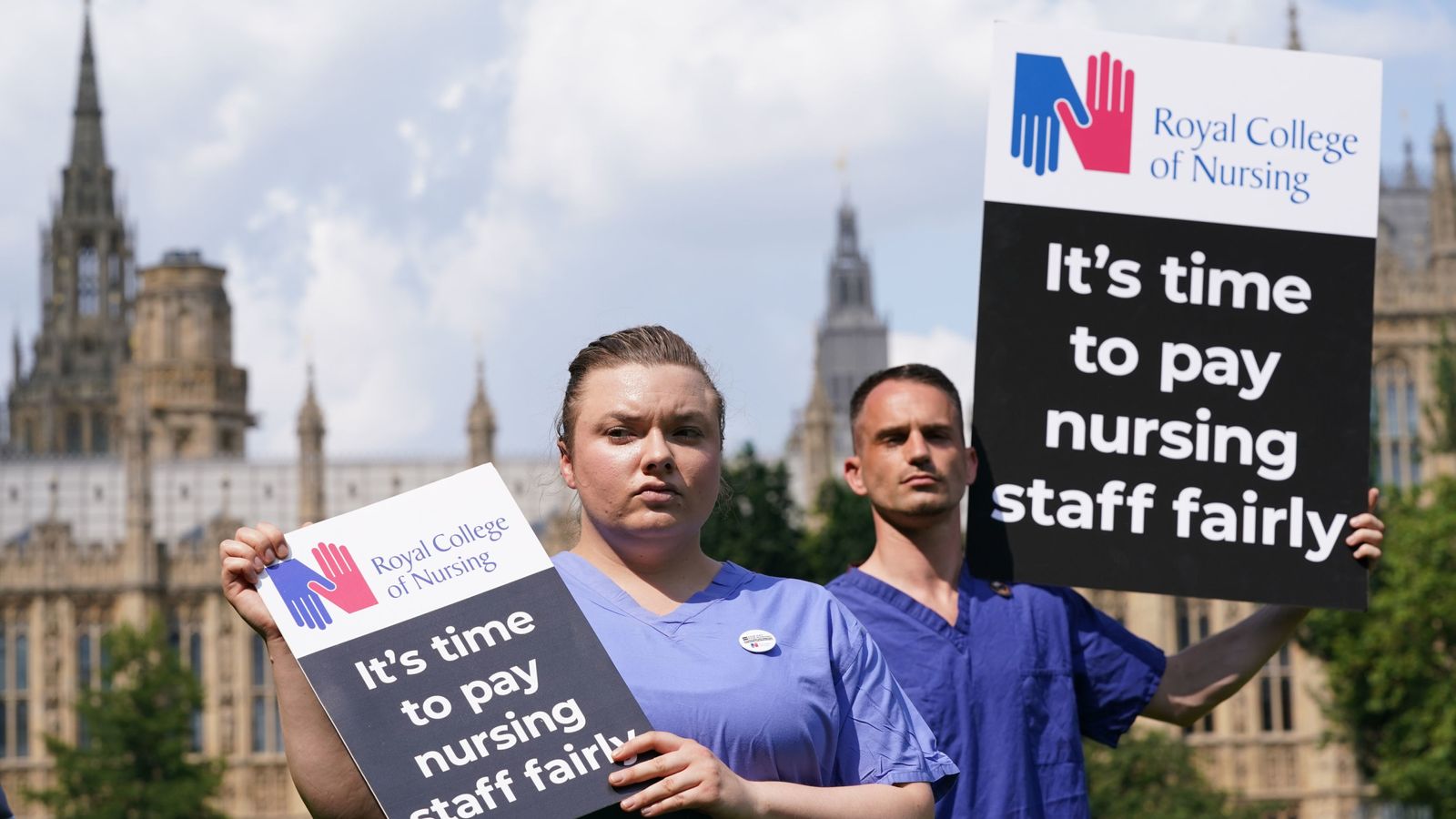Inflation-busting pay rises are “unaffordable”, cabinet minister Mark Harper has told Sky News in the face of strikes in the public sector.
The transport secretary said there “simply isn’t the money” to fund such wage hikes, even in line with rising prices, given the current economic situation and state of the public finances in the wake of the COVID-19 pandemic and the ongoing Ukraine conflict.
However, he hinted at progress in talks over the rail dispute.
His comments came as nurses are set to stage their first-ever UK-wide strike next month, unless they get a 19% rise.
It marks a widening of winter industrial action, with walkouts by transport and postal workers over pay and conditions.
Latest figures show inflation hit a 41-year high of 11.1% last month, fuelled by rising energy and food bills.
Speaking to the Sophy Ridge on Sunday programme, Mr Harper said: “We’re facing a very difficult economic situation.
“There’s the getting the economy back on track after the pandemic.
“There’s the war in Ukraine.
“So I think we want to make sure people have pay rises, but they’ve got to be pay rises that are affordable for the public sector and in the wider economic context.”
Read more:
Who is striking this winter and why?
He added: “I think inflation matching or inflation busting pay rises are unaffordable.
“I think we want to try and give all the workers in the public sector who work very hard decent pay rises, but they can’t be inflation-busting pay rises.
“There simply isn’t the money to pay for those given the context, we haven’t seen those in the private sector either, the private sector pay rises have generally been settled below the level of inflation, which I accept is difficult for people.”
But Labour’s shadow levelling up secretary Lisa Nandy said: “They’re unaffordable because of 12 years of Tory government and 44 days in which Liz Truss and Kwasi Kwarteng crashed the economy.
“I think there ought to be a level of humility about that within government.
“What he should be doing is moving heaven and earth to try and avert strikes coming up this winter.
“It’s been a really tough year for a lot of people and nobody wants to see strikes, least of all the people who are having to resort to strike action.”
The opposition frontbencher notably would not be drawn on whether the nurses’ call for additional pay was unaffordable, arguing the government had not “opened the books to us”.
Ms Nandy, who has previously supported striking workers on the picket line, also said she was not planning to join the nurses, insisting union members wanted her in Parliament “doing my job”.
Her stance will be seen as significant and a sign of Labour moving to counter Tory attack lines ahead of the next election.
Click to subscribe to the Sophy Ridge on Sunday podcast
Meanwhile, Mr Harper signalled a change in the mandate for negotiations in the rail dispute, after holding “constructive” talks with union bosses.
He told the BBC that rail chiefs “will have the ability to reach a deal”.
Mr Harper added: “But we have to be able to have that reform package negotiated, because it’s only that that throws up the savings.
“I do not have a bottomless pit of taxpayers’ money to throw at this problem.”
TUC general secretary Frances O’Grady welcomed a “change in tone” by the government.


